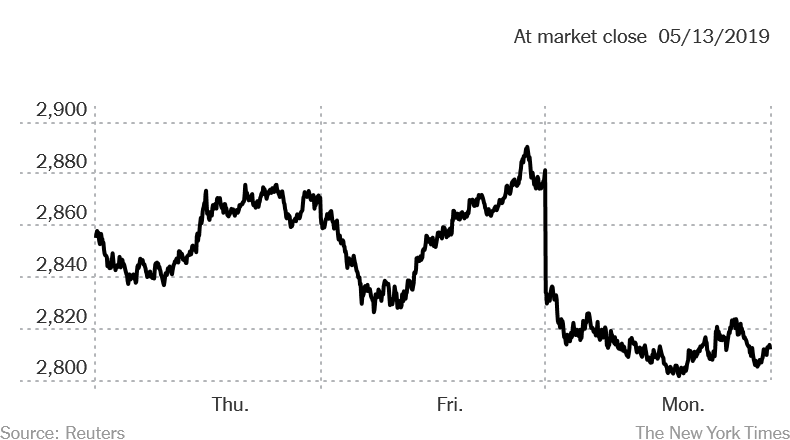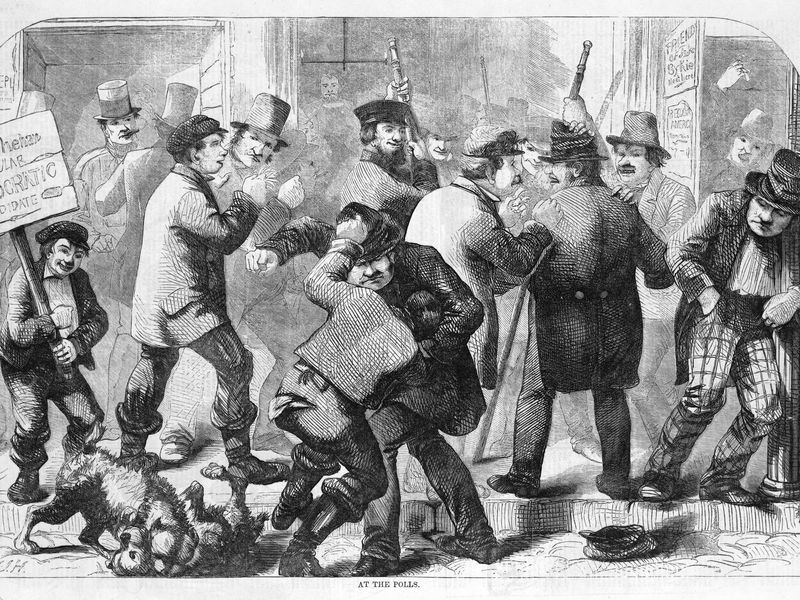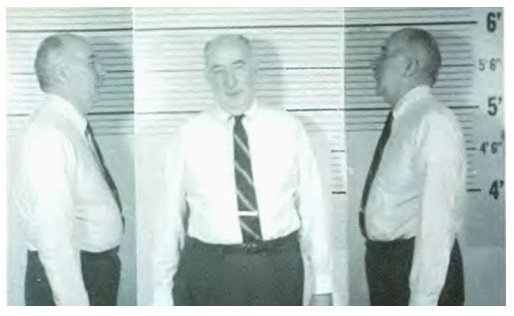Science is telling us we have little time left to us to avoid catastrophic environmental collapse, with equally catastrophic loss of life. So as we consider who to support for the Democratic presidential nomination in 2020, it’s essential we choose a candidate who is ready to do whatever it takes, even at political risk, to save our planet.
It has to be said that any of the Democratic candidates is far and away better on the issue of climate than Donald Trump. All of them say climate change is real. I believe all of them are on the record saying they want to return to the Paris climate agreement. The question is, are they better enough to pursue policies that might head off unprecedented global disaster? Or will they settle for ineffectual tweaks?
Here are the declared candiates, in alphabetial order (and yeah, I hadn’t heard of some of these people, either), with a brief description of their commitment to fighting climate change.
An *asterisk indicates the candidate has formally pledged to not take money from the fossil fuel industry. And while I do not believe the Green New Deal is necessarily the only way to go, those candidates who do not endorse it had better have a strong alternative plan, or they go on the “no” list.
Executive summary: My possibly biased conclusion is that the best candidates on climate change are Buttigieg, Gillibrand, Inslee, O’Rourke, and Sanders. Booker, Gabbard, Harris, Warren, and Yang get honorable mention. Any of those candidates can be trusted to address the issue aggressively, I believe. They differ somewhat in their proposed approaches.
The weakest are Delaney, Hickenlooper,. and Ryan, with Klobuchar getting a “meh.” For the other candidates, I need more information than I could find, which says something in itself.
Sen. Michael Bennet: Bennet has declared climate change to be one of his top issues. Acccording to Axios, “Bennet has been consistent on the issue of climate change, working toward a comprehensive approach to combat climate change. He was not a co-sponsor of the Green New Deal, but he recommends investing in renewable energy.” He may be okay, but he’s weak on details.
Former Vice President Joe Biden: He hasn’t been saying much about climate change in his campaign, but then his whole campaign is weak on policy details. Vox: “Biden’s commitment to the climate change issue can’t really be doubted — he introduced Congress’s first-ever climate bill way back in 1986 — and likens climate skepticism to ‘denying gravity.’ But he hasn’t really weighed in in a distinctive way on the subject.”
Sen. Cory Booker: Booker says “envionmental justice” is central to his campaign, although this is not necessarily the same thing as fighting climate change. He is a staunch supporter and defender of the Green New Deal proposal. He has not signed a pledge to not take money from the fossil fuel industry, however, even though that sector doesn’t seem to be a major source of funds for him, according to Open Secrets.
*South Bend, Ind., Mayor Pete Buttigieg: Buttigieg insists climate change is not just an issue, but a crisis. All signs indicate he gets the seriousness of the problem.
As a presidential candidate, Buttigieg has called for billions’ worth of investment in research and development to lower the cost of solar and other renewable technologies. He also wants every American home to be a “net zero” energy consumer, with each roof lined with solar panels. “Uncle Sam is gonna mail you a kit,” he told Yahoo News (that’s assuming he manages to get elected).
He has signed a pledge to take no contributions from the fossil fuel industry and supports the Green New Deal.
Ex-San Antonio Mayor Julian Castro: He has sworn to rejoin the Paris Climate Agreement and supports the Green New Deal. Also,
While he was the mayor of San Antonio, Castro pushed the city’s public utility to close a 900-megawatt coal-powered plant, adopt a 20 percent renewable energy by 2020 pledge, and offer green jobs training. The city also launched a small car-sharing program and a bike-share system aimed at making transportation greener under his leadership.
However, as mayor, he pushed to allow fracking around San Antonio.
Rep. John Delaney: Delaney’s proposals include instituting a carbon tax, re-joining the Paris Agreement, and investing federal dollars in green technology. However, he has slammed the Green New Deal as a “far left” program.
*Rep. Tulsi Gabbard: Gabbard declined to back the Green New Deal, citing concerns that it is too vague. Well, yes, it is vague; comprehensive programs will need to be spelled out within the Green New Deal framework. Nobody is saying otherwise. On the other hand,Gabbard introduced a bill to transition the U.S. away from all fossil fuel use by 2035. I have no feel for how feasible Gabbard’s plan is, but it would be a grand thing to try.
*Sen. Kirsten Gillibrand: Gillibrand supports the Green New Deal.
There is no question she does have a strong record supporting environmental issues and an aggressive vision for fighting climate change.
Former Sen. Mike Gravel: Seriously, Mike Gravel is running again. You can read about him here. I hope he makes some more videos. What I can find about his intentions on climate change sounds as if he appreciates the seriousness of the problem.
Sen. Kamala Harris: Environmental activist groups love Harris’s voting record, and she was a co-sponsor of the Green New Deal. Beyond that, I’m not finding details about what she proposes.
Former Gov. John Hickenlooper: Hickenlooper is one of those “I will reach across the aisle” types who belongs in another century. He opposes the Green New Deal and wants private industry to play a larger role in fighting climate change. He has not signed the “no fossile fuel money” pledge.
*Gov. Jay Inslee: Inslee has put fighting climate change at the front of his campaign and has a lot of proposals to deal with it. Supports Green New Deal? Check. Signed “no fossil fuel money” pledge? Check. Here’s an article about his climate change proposals. There’s no question Inslee is a strong candidate on the climate change issue. Note:
Only O’Rourke and Inslee’s climate plans so far address the overall question of how to stop U.S. carbon emissions. Each proposal focuses on a duel purpose of moving the country off fossil fuels and investing in green jobs to grow the economy.
Inslee’s plan is similar to the Green New Deal in that it aims to completely transition to clean energy by 2030. But the governor also leaves open the door to using nuclear power, an energy sector to which some environmental groups are staunchly opposed.
Sen. Amy Klobuchar: Klobuchar gets credit for arguing that Democrats should be running on addressing climate change, especially in farm country. Rural America is dealing with fires, floods, droughts, and unseasonal temperatures both high and low. She calls the Green New Deal “aspirational” and says she would vote for it. The “aspirational” comment angered some activists, but I can’t say she’s wrong. But then she said “I don’t see it as something that we can get rid of all these industries or do this in a few years — that doesn’t make sense to me — or reduce air travel.” This makes her seem a bit squishy to me.
*Miramar, Fla., Mayor Wayne Messam: Mayor Messam is no doubt a fine man, but I am not finding a lot of information about him. Here is where he stands on several issues.
*Rep. Seth Moulton: Moulton, whose primary focus is national security, has said that he supports the Green New Deal. But in an Atlantic interview he took a swing at the Green New Deal and called it “divisive.”
“Candidates are running on a message of division, just like Trump did. It’s not as bad. It’s not as immoral. But I hear divisiveness in a lot of the other campaigns,” he said. To him, that includes the Green New Deal—he supports an aggressive approach to climate change, but he thinks a collection of estimates and aspirations only hurts the cause. Moulton said he’s working on a version of his own, drawn more deeply from conversations with experts.
“I think we want to be careful that we don’t become hypocrites and start ignoring science, just like the right has been doing,” he said.
No specifics on why he thinks the Green New Deal ignores science. To his credit, Moulton has signed the “no fossil fuels money” pledge.
*Former Rep. Beto O’Rourke: O’Rourke has signed the “no fossil fuels money” pledge but has proposed an alternative to the Green New Deal. The ambitious $5 trillion climate change proposal is aggressive and detailed and aims for net-zero carbon emissions by 2050. As usual, implementation of the plan would require Democrats holding both houses of Congress. See also Nearly two dozen Democrats want to be president. Only two have a climate change plan. The two, the article says, are Inslee and O’Rourke.
Ohio Rep. Tim Ryan: Ryan has not signed the “no fossil fuels money” pledge, and this quote from an interview is not encouraging:
“We need a Green New Deal,” Ryan said. His version would include using the tax code to “incentivize investments” into renewable energies and green technologies, and into “distressed communities.” It would also include an emphasis on making sure we have enough college graduates in science, technology, engineering and mathematics to “help us continue to build out the innovations we need to decarbonize the economy.”
That would have been great 20 years ago. Now it’s too little, too late.
*Sen. Bernie Sanders: Sanders also checks all the right boxes on the climate change issue. He gets it. He has folded combating climate change into his economic justice message: “We’re going to create millions of good-paying jobs weatherizing our homes, changing our transportation system, moving aggressively into wind and solar and other sustainable energies,” Sanders said. In In 2015, he unveiled a plan to cut US carbon emissions 80% by 2050. He has been criticized for not unveiling a comprehensive plan during this campaign, however.
*California Rep. Eric Swalwell: Swalwell has a pro-environment voting record and says he supports the “principles” of the Green New Deal. He does seem to get the urgency of the crisis, but I’m not finding policy details.
*Sen. Elizabeth Warren Warren has proposed banning new coalmining and oil drilling on public lands, which could cut US emissions but fall short of what scientists say is needed. Her recent floor speech on climate change suggests she gets the scope of the problem. She has promised to make the Green New Deal the centerpiece of her environmenal policy. So far she has not brought out a detailed climate change proposal of her own, but I’d be surprised if she doesn’t before this year is over.
*Author Marianne Williamson: I don’t consider her to be a serious contender, but she has signed the no fossil fuel money pledge and has some proposals on her website. So credit where credit is due.
*Former tech executive Andrew Yang: Yang has some interesting proposals on his website, such as “Invest heavily in carbon capture and geoengineering technologies designed to reverse the damage already done to the environment through a new Global Geoengineering Institute and invite international participation.” I can’t say I’ve heard that one anywhere else. I’d like to hear more discussion of how his proposals might work.






